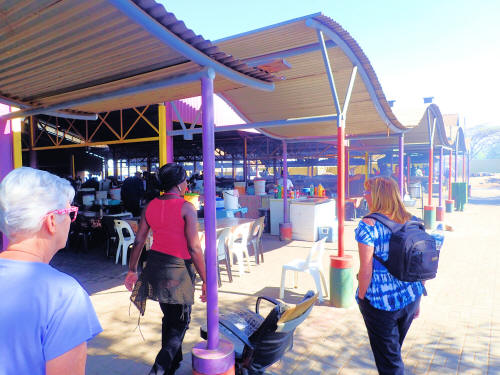 |
Today we took a tour of Katatura, the local
township. Townships were created in the era of South African
apartheid. That was the only place black people were allowed to
live, the other suburbs of the city were reserved for whites only.
Katatura was divided into sections so the white
regime could have more control over them. 1) The tribes, The Blacks
and The Coloured's. Yes, Coloured is a distinct race in South Africa
and parts of Namibia.
All that ended 30 years ago, but the townships
remain as the primary place where black people live.
|
|
70% of Windhoek's population live in Katatura
simply because it is still the cheapest place to live and only
really the emerging black middle class have moved out to the
previous white neighborhoods. Translated to English "Katatura" means: "A place
where people do not want to live". |
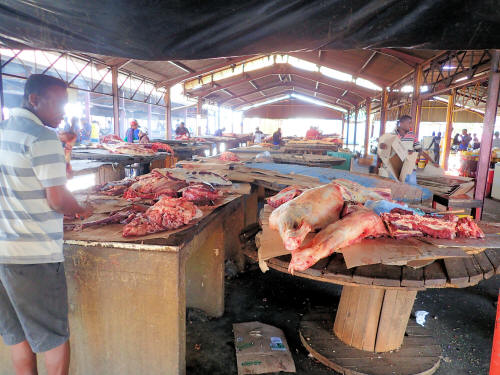 |
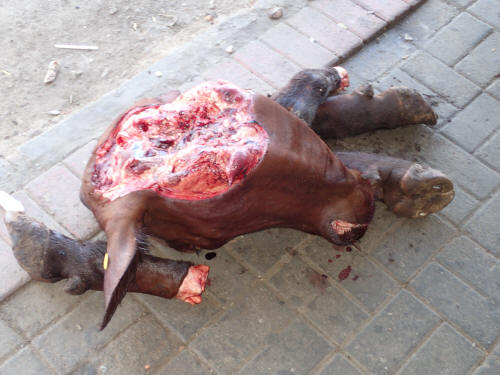 |
|
This is at the main market. A whole cow will be chopped up by a
group of guys. Seems like the head and hooves are discarded (unlike
in Asia where everything is cooked!). It appears however, they
do utilize the cow brain. |
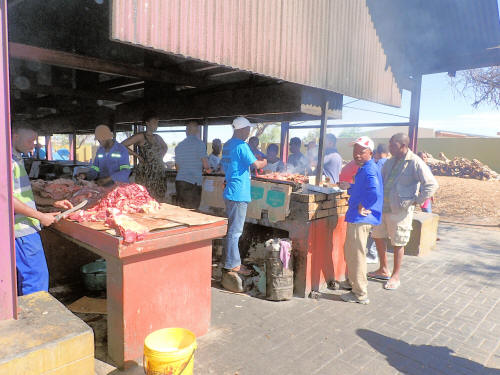
The meat is then cooked
and sold on
the spot to hungry
workers. |
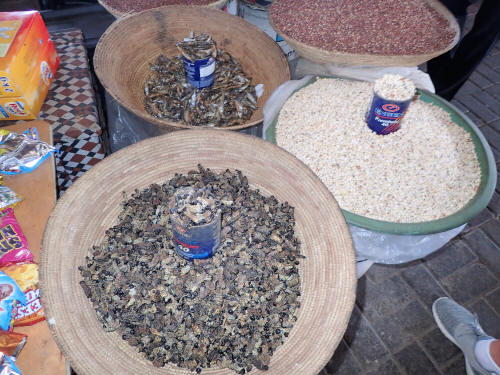
Worms anyone? Mopani worms are actually caterpillars (as if that's
any better) and are a delicacy amongst African people. I am told
even though they are packed with protein and minerals they taste
like crap! |
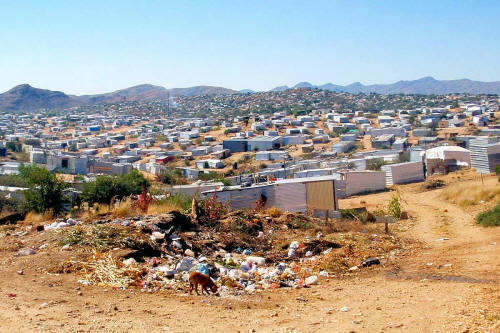 |
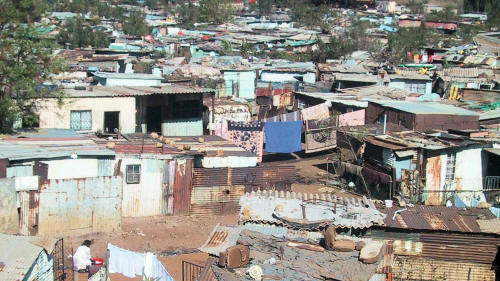
While there are plenty of nice homes in |
|
Katatura, many, many other poorer people live in one room
corrugated iron huts with no water and no electricity (or bathroom). |
|
Schooling is free so the education level is
rising. But there are still not enough schools. They divide classes
into mornings and afternoons to try to accommodate all the kids.
Black African families are very large with TONS of kids - it's a
sign of prosperity to them. |
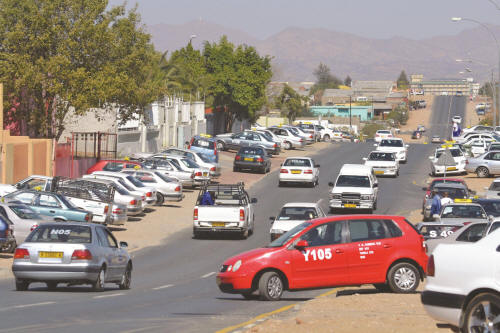 |
Most people here work in town (Windhoek downtown)
and the preferred transport is taxi. They are identified by the
large registration number on the side and back window.
Even though there are thousands of taxis the
demand is so high that often people can't find one available to get
home after work.
It surprises me that the taxis here are regular
cars. In South Africa they are minivans which hold many more
passengers and put multiple groups of people together to make it
cheaper. |
|
Like South Africa, taxi drivers are the worst drivers in the world
and you have to watch them like hawks for something stupid they will
do. |
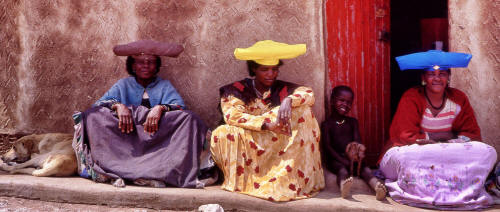 |
Gloria was particularly intrigued by the Herero
tribal women. They wear their traditional dress every day.
"Herero" means "people who throw spears",
but these days they are very peaceful people mostly cattle farmers
but intensely proud of their culture. |
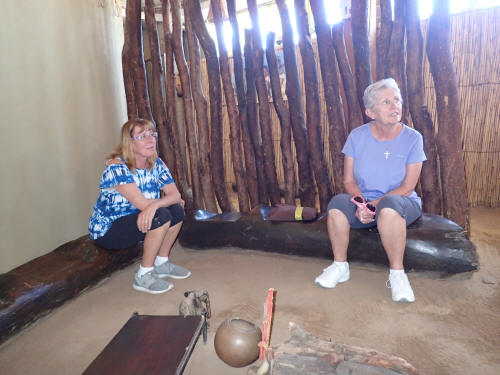 |
We also went to a cultural center for the Ovambo
Tribe to experience their customs, foods and practices.
There are 13 tribes in Namibia, but the Ovambo is
the largest and come from Northern Namibia.
Both the former and current presidents of Namibia
are Ovambo. |
|
Wendy discovered we were not sleeping alone in our room
last evening. I am quite proud of her for not letting out a
blood curdling scream when she saw him. He is kinda cute.
But our room at the hotel IS his home and he's not leaving!! We
tried to get a photo of him, but he's really quick! This photo
courtesy of Google. |
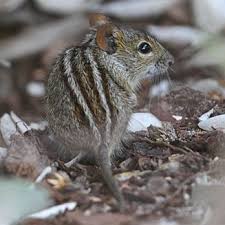 |
|
And finally...
When Namibia became independent in 1990 the new
government decided to rename a lot of roads in Windhoek because they
didn't like the original South African names.
Well I guess you can see which side of the commie fence they were
on >>> |
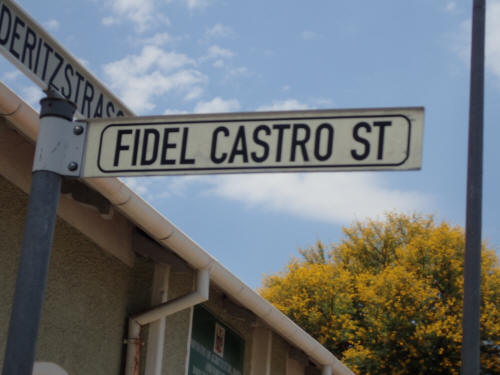 |
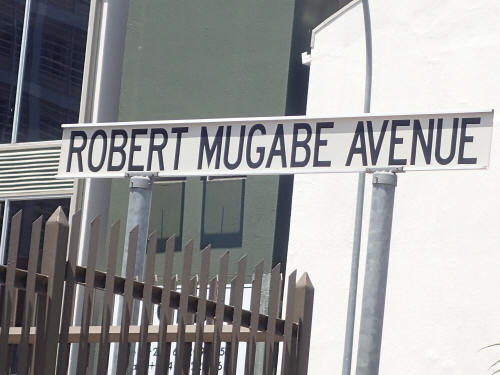
This one is especially embarrassing now... |
|
|
|





